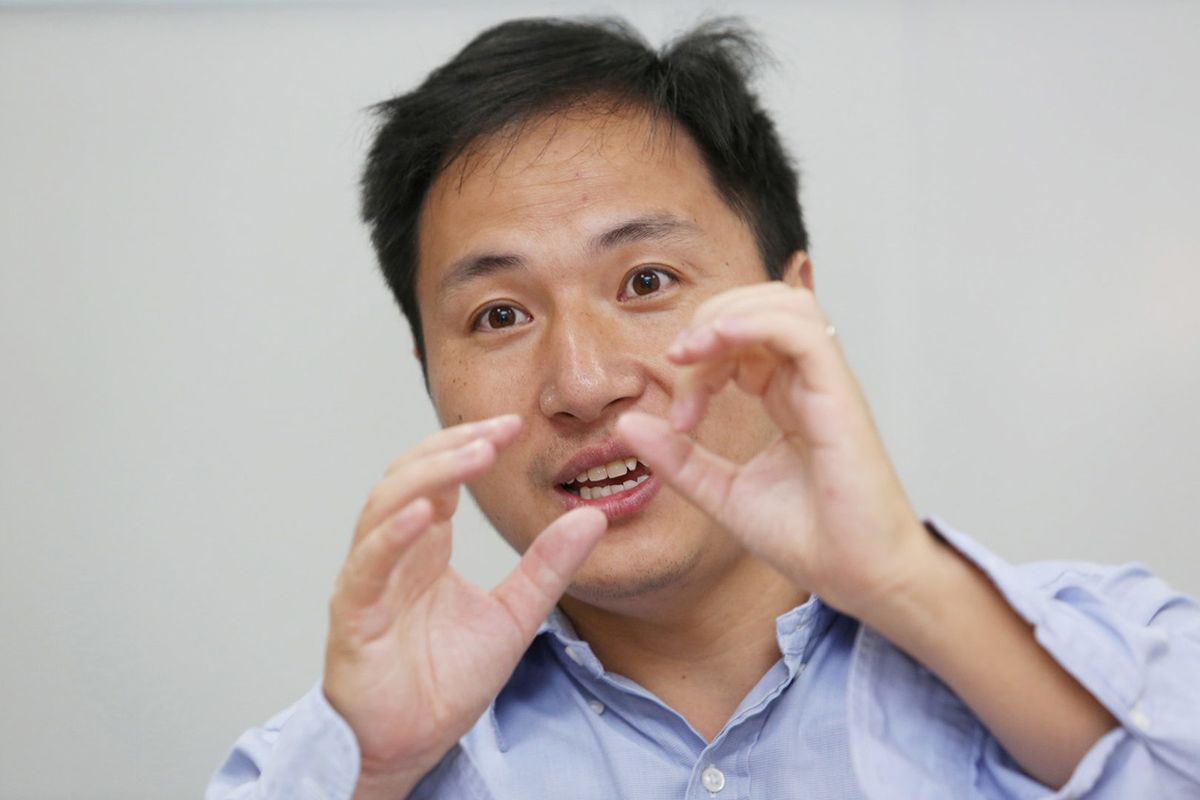Last week, a Chinese scientist sparked an uproar when he claimed that a woman had given birth to two babies whose DNA he had modified using an experimental gene-editing technology called CRISPR.
Here's a quick the rundown on why this is a big deal, politically.
What happened? The Chinese scientist, He Jiankiu, used CRISPR, a cheap, precise, and widely available DNA-editing technique, to change the genes of two human embryos before implanting them in their mother's womb. CRISPR had previously only been used in plant and animal experiments, on adult cancer patients, or non-viable human embryos. Its use to create gene-modified babies has sparked outrage and alarm.
What's the political angle? Internationally, governments and the private sector are excited about CRISPR, which could revolutionize agriculture and the treatment of disease by enabling edits to organisms' genes. Yet even before last week's news, some people worried that the same technology could be prone to ecological accidents, or be used by governments or terrorists to create new bio-weapons.
He's experiments, which were apparently carried out without basic oversight, will reinforce those concerns. It might eventually be possible to create human beings with improved intelligence, longer lifespans, or other genetic enhancements – a trend that would raise serious ethical issues, and could even inflame political tensions between countries that have conflicting views about which types of genetic changes should be allowed.
What's the upshot? Assuming the scientist's claims hold up to scrutiny, the world of custom-designed humans is no longer a far-off sci-fi fantasy, it's happening now. Questions about how to safely and ethically manage this revolution just took on new urgency.


















